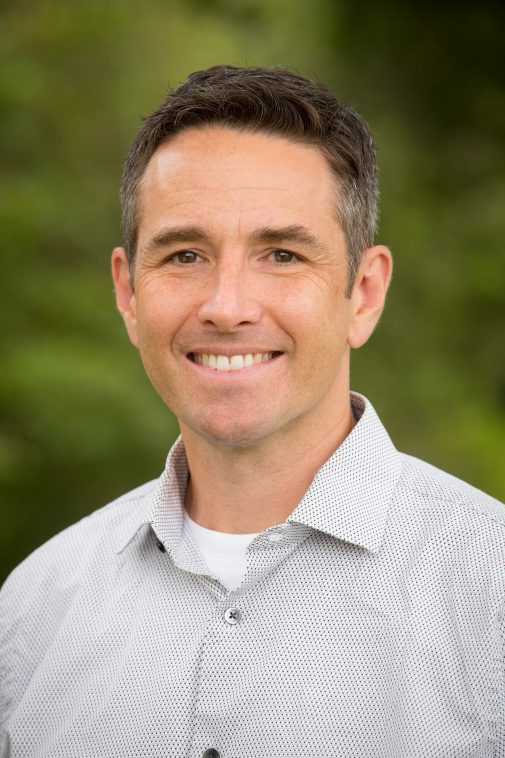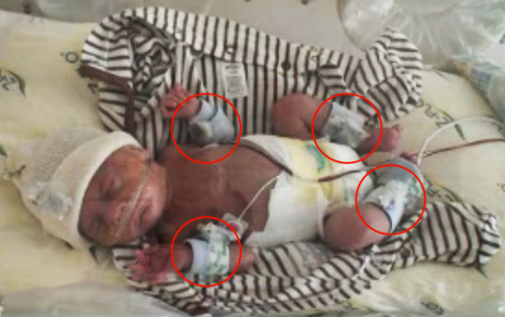Research Detects Preemies with Cerebral Palsy
By
Westmont

A limb motion monitor attached to babies born prematurely could lead to early detection of cerebral palsy in later years of life. Don Patterson, Westmont professor of computer science, and a team of scientists in Southern California are working to detect cerebral palsy (CP) in preterm babies. The National Institute of Health (NIH) has awarded the researchers a grant to conduct studies of preemies in hopes of getting the medical innovations approved for clinical practice. Though the causes of preterm birth are varied, premature infants are at greater risk for cerebral palsy and other problems.
Patterson, who has a patent on a limb motion monitor, and the researchers from UC Irvine, Children’s Hospital of Orange County and Miller Children’s and Women’s Hospital in Long Beach use machine learning to determine which babies are at greater risk of being diagnosed with cerebral palsy later in life.
“I’m excited that this work primarily focuses on making the world a better place for vulnerable moms and kids,” Patterson says.
NeuroComp Systems, which specializes in this kind of translational research, administers the Small Business Innovation Research grant. This summer, the research team hopes to enroll about 200 babies, instead of the 10 involved in the pilot study. Patterson and his Westmont student researchers will analyze the accelerometer data. “We will look for patterns and use machine learning to identify more precise motion-based risk factors for CP,” Patterson says. “I hope we observe the same or better results in this larger trial and that Westmont students will have the opportunity to be involved in a study that can have a worldwide impact in medicine and health."

“I hope we see the same or better results in this larger trial and that Westmont students will get excited about research and using their skills in the world.”
Patterson, who taught at UC Irvine before joining Westmont’s faculty in 2015, earned bachelor’s and master’s degrees at Cornell University. He served as a naval operations officer for four years in Japan and Sardinia. He earned a doctorate from the University of Washington and received multiple grants and won awards for articles on collapse informatics and abstract object usage.
Filed under
Academics, Admissions, Campus News, Faculty and Staff, Giving, Press Releases